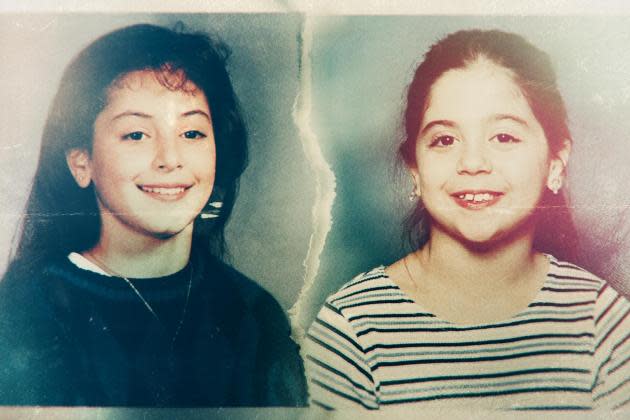‘She Looks Like Me’ Review: Family Secrets and Public Scandals Brush Shoulders in a Scattered Documentary

A tale of disability, abuse, expectations and family secrets, “She Looks Like Me” from director Torquil Jones has a headstart on most documentaries, given its subject matter’s winding twists and turns. Some key details end up obscured — there’s enough real-life material here to fill an entire miniseries — but the film has an alluring atmosphere, and is rife with enough intimate re-enactments, to be occasionally absorbing.
Dreamlike hymns echo off the walls of an ornate church in the movie’s opening scenes. These have little thematic bearing on the story, but they make for a vibrant aesthetic, appearing and reappearing during moments of quiet reflection. A now-adult Jen Bricker — a woman born without legs — narrates the broad strokes of her childhood, from her adoption in rural Illinois, to the way her parents and three older brothers raised her to believe she could do anything she wanted. Old photos and home videos paint a portrait of a precocious young girl, for whom interests like baseball, basketball and gymnastic tumbling weren’t insurmountable hurdles, but temporary challenges that she would inevitably overcome. However, when she finds herself drawn, as a seven-year-old, to the career of famous teenage gymnast Dominique Moceanu — to whom she bears an uncanny resemblance — family secrets begin to unravel.
While “She Looks Like Me” begins as a tale of Jen’s upbeat resilience and her curiosity about her biological family, its narrative becomes quickly bifurcated. It’s as much about Dominique’s childhood too. She occupies an entirely different world, to which Jones whisks us away by zooming into the corners of the Bricker family’s footage, to find TV screens playing broadcasts of Dominique competing. As Jen eagerly dotes upon the older athlete, she imagines a perfect life for her, but the truth is much darker, and is soon revealed once the movie switches perspective and begins telling Dominique’s story.
The actual connection between the two young girls (now women in their thirties and forties) isn’t all that hard to parse given the details laid out, and the movie is quick to reveal it too. However, despite Jen’s desire to meet her inspiration, “She Looks Like Me” bides its time and delays this tale of search and potential meeting, in favor of telling the stories of its two subjects in great detail. On one hand, it digs into the depths of Dominique’s rigorous upbringing by her gymnast parents, a pair of Romanian immigrants to the U.S. whose customs, according to Dominique, led to a culture of silence. This went hand in hand with an abusive environment on the USA Gymnastics team (a scandal that would eventually become public). On the other hand, it follows the ups and downs of Jen’s story after she leaves home for college, and brushes up against a world that isn’t prepared to treat a disabled woman with the amount of respect she has for herself.
Bodily insecurity is a major part of both women’s stories, from the expectations foisted upon young female gymnasts, to the surprising (and amusingly frank) admissions from Jen, whose self-image issues, it turns out, have little to do with not having legs. As Jen takes up a physically grueling passion of her own — aerial acrobatics — Jones and cinematographer Andrew White present graceful re-stagings of moments from her career, which make deft use of shadow and spotlight, and veer into rousing territory.
However, the further “She Looks Like Me” goes on, the less it’s able to completely balance its competing narratives. Jen’s tale remains personal and familial. Meanwhile, as Dominique’s half of the movie becomes about her public advocacy, its framing becomes less intimate, widening its scope to include public figures like Simone Biles, rather than family members. This leaves a number of pressing questions unanswered when the two women’s lives finally intersect — questions Jen claims to have pondered as a child.
In pushing these elements into the backdrop, “She Looks Like Me” ends up skimming the surface of an emotionally explosive story, and rushes through its more discomforting beats, to arrive at payoffs that feel only semi-earned. Despite these flaws in its construction, the film proves riveting in isolated moments, enough to make it an intriguing watch, even though two women’s final steps toward much-needed catharsis unfold mostly off-screen.
Best of Variety
Sign up for Variety’s Newsletter. For the latest news, follow us on Facebook, Twitter, and Instagram.

